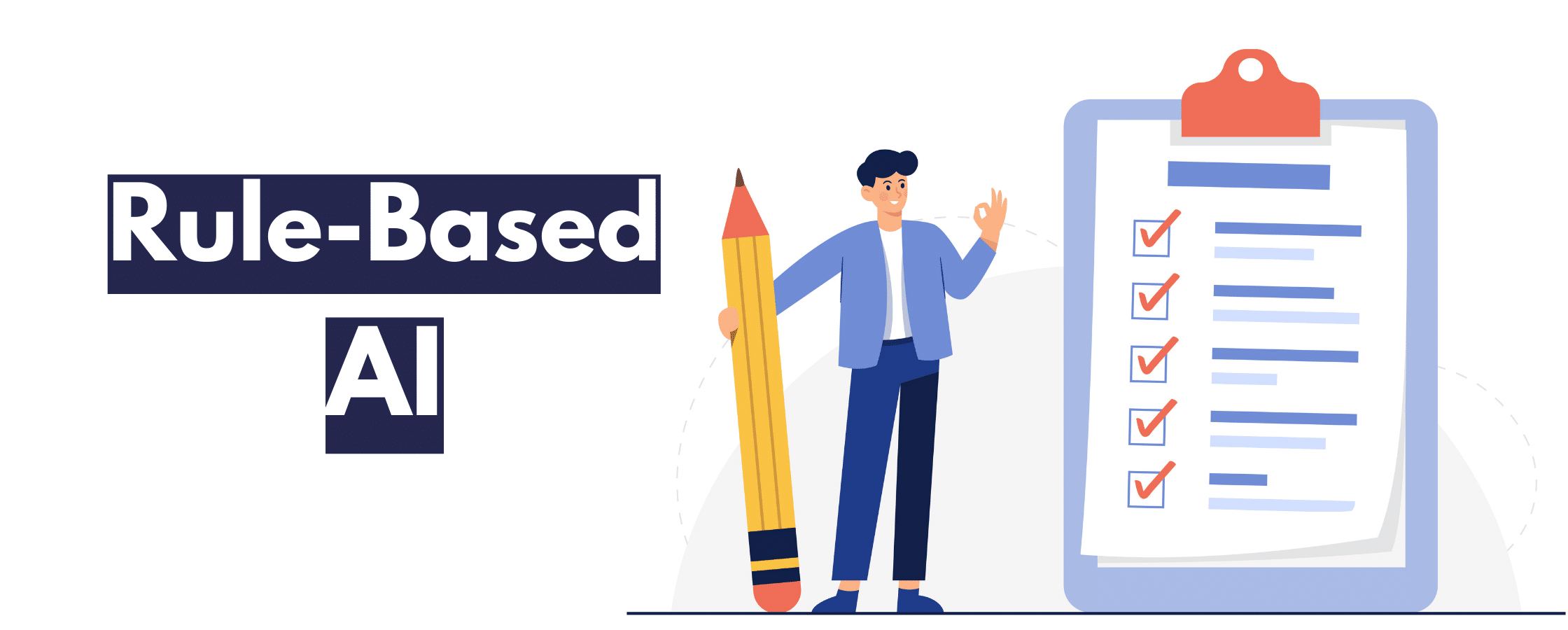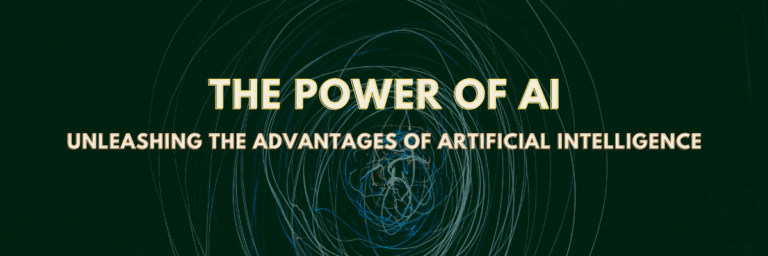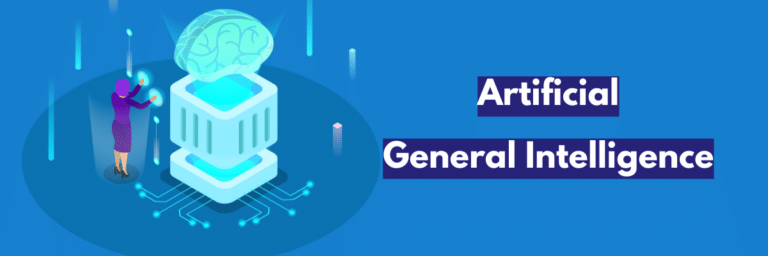Exploring the Various Types of Artificial Intelligence: Which is Right for You?
Artificial Intelligence (AI) has revolutionized the way we live and work, and it continues to have a profound impact on everyday life in our society. AI has become a critical tool for solving complex problems, and it is being used in a wide range of applications, from healthcare and finance to transportation and education. One of the fundamental aspects of AI is the various types of artificial intelligence that exist. Understanding the different types of Artificial Intelligence is crucial in developing new AI applications and systems.
This article will explore the various types of Artificial Intelligence, including rule-based AI, machine learning, neural networks, and expert systems.
We will also examine the advantages and disadvantages of each type of AI and its applications in different industries.
So, let’s delve into the fascinating deep blue world of AI and explore artificial general intelligence and the different types of artificial intelligence systems that make it possible.
Table of Content
- Top 4 Types of Artificial Intelligence
- Applications of AI in Different Industries
- Ethical Considerations Regarding AI
- Future of Artificial Intelligence
- Final Thoughts
- Frequently Asked Questions
Types of Artificial Intelligence
Artificial intelligence (AI) is more than just robots and sci-fi movies. It’s a fascinating field that has the potential to revolutionize how we work, live, and interact with the world around us. But not all types of Artificial Intelligence are created equal.
There are different types of artificial intelligence, each super AI with unique characteristics, strengths, and weaknesses.
Here are the four most common types of Artificial Intelligence you should know about:
Rule-Based AI

These rules are typically written in the form of if-then statements, which tell the system what to do in different situations.
Advantages of Rule-Based AI
- Simplicity: The rules are explicitly defined, making it easy to understand how the system arrives at a decision.
- Easy to program: It requires less data and is relatively easy to program compared to other forms of AI.
- Quick and accurate decision-making: Industries such as healthcare and customer service frequently utilize rule-based AI, which enables them to make quick and accurate decisions.
Limitations of Rule-Based AI
- Inflexibility: Rule-based AI might struggle with complex situations not covered by its rules.
- Limited scope: Developing comprehensive rule sets that cover all possible scenarios is challenging.
- Suitable for simple problems: Rule-based AI is best suited for relatively simple problems with well-defined rules.
Rule-based AI remains an important part of the AI landscape despite its limitations. It’s a valuable tool for solving certain types of problems, and it can be combined with other forms of AI to create more sophisticated systems.
Machine Learning

There are three main types of machine learning: supervised deep learning, unsupervised deep learning, and reinforcement learning.
Advantages of Machine Learning
- Can learn and adapt: It can learn and adapt to new data, making them useful for speech recognition and natural language processing tasks.
- Can identify patterns in large datasets: It can identify patterns in large datasets that would be impossible for humans to process.
- Can improve over time: It can improve over time as they are exposed to more data, which makes them useful for tasks like predictive modelling.
Limitations of Machine Learning
- Requires large amounts of data: It requires large amounts of data to be effective, which can be challenging to obtain in some cases.
- Can be biased: It can be biased if they are trained on biased data, which can lead to unfair or inaccurate predictions.
- Can be computationally expensive: Training machine learning models can be computationally expensive, which can be a barrier to adoption in some cases.
Despite its limitations, machine learning is a powerful tool for solving many problems. It is helpful in everything from personalized advertising to fraud detection. t is becoming increasingly important for solving future problems in fields like healthcare and finance.
Neural Networks

They are designed to recognize patterns and relationships in data, which allows them to make predictions and decisions based on that information. Neural networks in these types of artificial or general intelligence are composed of layers of interconnected nodes, also called artificial neurons.
Each neuron super ai receives input from other neurons and processes that information before passing it on to the next layer of neurons. The output of the final layer of the strong ai of neurons represents the network’s prediction of or decision.
Advantages of Neural Networks
- Ability to recognize complex patterns: Neural networks can recognize complex patterns in data that would be difficult or impossible for humans to identify.
- Flexibility: They can adapt and learn from new data, making them useful for tasks like image and speech recognition.
- High accuracy: Neural networks can achieve high accuracy in tasks like image classification, where they outperform humans in some cases.
Limitations of Neural Networks
- Data requirements: Neural networks require large amounts of data to be effective, which can be challenging to obtain in some cases.
- Black box nature: It can be difficult to understand how a neural network arrives at a decision, making it hard to trust or explain its outputs.
- Training time: Training a neural network can be computationally expensive and time-consuming.
Irrespective of their limitations, neural networks help in a wide range of applications, from both image recognition and speech recognition to autonomous vehicles and natural language processing.
In healthcare, neural networks analyze medical images and diagnose diseases like cancer. In finance, they can detect fraud and make investment predictions.
Expert Systems

They are typically used in domains with a large body of knowledge that can be codified and where decisions must be made quickly and accurately.
Expert systems consist of a knowledge base containing information about a particular domain and an inference engine, which uses that information and historical data to make decisions or recommendations about specific types of artificial tasks.
The system is programmed to ask questions and gather information from the user in order to mine past data to arrive at a decision or recommendation.
Advantages of Expert Systems
- Fast and accurate decision-making: Expert systems can make decisions or recommendations quickly and accurately, which can be useful in fields like medicine or finance, where time is of the essence.
- Consistency: They can provide consistent advice or recommendations, which can help to reduce errors or inconsistencies.
- Cost-effective: Expert systems can be cost-effective when human experts are in short supply or their time is expensive.
Limitations of Expert Systems
- Limited to a specific domain: They are limited to the domain for which they were designed, and they may not be able to handle unexpected or novel situations.
- Limited ability to learn: Expert systems do not have the ability to learn from new data or experience, which can limit their usefulness over time.
- Can be expensive to develop: Developing an expert system can be expensive and time-consuming, especially if a large amount of knowledge needs to be codified.
Expert systems are widely used in fields like medicine, finance, and engineering, where they help to improve decision-making and reduce errors.
They are also helpful in areas like customer service and technical support, where they can provide consistent and accurate advice to customers.
Applications of AI in Different Industries
Artificial intelligence (AI) has become an increasingly important technology in today’s world, with applications in many different industries and domains.
From natural language processing to robotics, AI has the potential to transform the way we live, work, and interact with technology.
In this section, we will explore some of the most common applications of AI:
1. Healthcare
AI is revolutionizing the healthcare industry in numerous ways, from improving the accuracy of disease diagnosis to accelerating drug discovery.
Here are some of the most impactful applications of AI in healthcare:
- Disease Diagnosis
- Drug Discovery
- Personalized Medicine
- Medical Imaging
- Virtual Nursing Assistants
2. Finance
From improving customer service to detecting fraud, the following are some of the most common applications of AI in finance:
- Customer Service
- Fraud Detection
- Risk Management
- Trading
- Personalized Financial Advice
3. Manufacturing
AI is transforming the manufacturing industry in several ways, from improving product quality to reducing costs.
The following are some of the most common applications of AI in manufacturing:
- Quality Control
- Predictive Maintenance
- Supply Chain Management
- Robotic Automation
- Product Design
4. Transportation
From improving safety to reducing congestion, AI has brought several changes in the industry.
Here are some of the most common applications of AI in transportation:
- Autonomous Vehicles
- Traffic Management
- Predictive Maintenance
- Logistics Optimization
- Passenger Experience
5. Education
AI is transforming the education industry in many ways, from using training data to improving student outcomes to increasing efficiency, as follows:
- Personalized Learning
- Grading and Assessment
- Intelligent Tutoring
- Student Support
- Administrative Efficiency
Ethical Considerations Regarding AI
Ethical considerations are a crucial aspect of developing and deploying artificial intelligence (AI) systems. AI can potentially bring significant benefits to society, but it can also cause harm if not designed and implemented responsibly. One must consider several ethical considerations when developing and deploying AI systems, including bias, privacy, and safety.
Bias in AI
One of the most significant ethical considerations related to AI is bias. Bias can arise in AI systems in several ways, including algorithmic bias, data bias, and user bias. Algorithmic bias occurs when the algorithm used in the AI system is biased towards certain outcomes. Data bias occurs when the data used to train the AI system is biased towards certain groups or outcomes. User bias occurs when the user of the AI system is biased towards certain groups or outcomes.
Privacy Concerns
Another ethical consideration related to AI is privacy. AI systems often rely on vast amounts of personal data, which can be sensitive and private. Therefore, it is essential to ensure that the collection, storage, and use of personal data are done responsibly and with the individual’s consent.
One example of a privacy concern related to AI is the use of facial recognition technology in public spaces. This technology has raised concerns about the invasion of privacy and the potential for misuse. Therefore, it is essential to develop regulations and guidelines for the use of AI in public spaces to protect individual privacy.
Safety Concerns
AI systems can also raise safety concerns, particularly in areas such as healthcare and transportation. In healthcare, AI systems help in diagnostic purposes and decision-making, which can have life-threatening consequences if the system malfunctions or is incorrect. In transportation, AI systems help autonomous vehicles, which can cause accidents if the system is faulty.
Final Thoughts
Artificial intelligence is transforming industries across the world, from healthcare to transportation and education to finance. By leveraging the power of machine learning algorithms and big data analytics, companies and organizations can improve their operations, reduce costs, and create value for their customers.
However, as AI evolves and becomes more advanced, companies and policymakers need to use it responsibly and ethically. This means prioritizing safety and security, promoting equity and fairness, and ensuring that AI is used to benefit all members of society.
As we move into the future, it’s clear that AI will play an increasingly important role in our lives and the world around us. By embracing this technology and using it in a responsible and ethical way, we can unlock its full potential and create a better future for generations to come.
Thank you for reading through to the end. Do check out our next blog, ‘Top 12 AI Marketing Tools to Grow Your Business in 2023.
Future of Artificial Intelligence
The field of artificial intelligence (AI) is rapidly evolving. There are several potential developments on the horizon that could shape the future of AI. Some of these potential developments include:
1. Advances in Deep Learning
Deep learning has been one of the most significant breakthroughs in AI in recent years, allowing AI systems to learn and improve from vast amounts of data. As computing power continues to increase, deep learning algorithms are expected to become even more powerful and sophisticated.
2. Explainable AI
Explainable AI is the development of AI systems that can provide explanations for their decision-making processes. This is particularly important in areas such as healthcare and finance, where decision-making must be transparent and understandable.
3. Human-like AI
Human-like AI is the development of AI systems that can perform a wide range of tasks and exhibit human-like intelligence. It is also known as artificial general intelligence (AGI). While AGI is still a long way off, researchers are making progress in developing AI systems that can perform multiple tasks and learn from experience.
4. Quantum Computing
Quantum computing is a rapidly advancing field that could significantly increase the power and speed of AI systems. Such computers help to perform complex calculations and simulations. These could lead to breakthroughs in areas such as drug discovery and climate modelling.
5. AI and Robotics
AI and robotics are becoming increasingly integrated, with the development of robots that can perform complex tasks using AI systems. This integration is expected to continue, leading to the development of more sophisticated and capable robots.
Frequently Asked Questions
What is artificial intelligence?
Artificial Intelligence (AI) is the development of computer systems that can perform tasks that typically require human intelligence, such as understanding natural language, recognizing images, making decisions, and learning from experience.
What are the different types of Artificial Intelligence?
The different types of Artificial Intelligence include rule-based systems that follow predetermined rules, neural networks that mimic the structure and function of the human brain, machine learning that uses algorithms to learn and make predictions, and expert systems that use knowledge and decision-making rules to solve complex problems.
What are neural networks, and how are they used in AI?
Neural networks are a type of artificial intelligence that mimics the structure and function of the human brain, consisting of interconnected nodes or “neurons.” They are used in AI for tasks such as image and speech recognition, natural language processing, and decision-making by learning from large amounts of data through a process called training.
What are the benefits of using AI in various industries?
The benefits of using AI in various industries include increased efficiency, productivity, and accuracy, reduced costs, and improved decision-making. AI can also enable companies to understand their customers better, personalize products and services, and identify new business opportunities.
What are the potential risks or drawbacks of AI?
The potential risks or drawbacks of AI include job displacement, biases in decision-making, privacy and security concerns, and the potential for AI to be used for harmful purposes. AI can also create ethical and moral dilemmas, such as the potential use of autonomous weapons or the impact of AI on individual autonomy.






